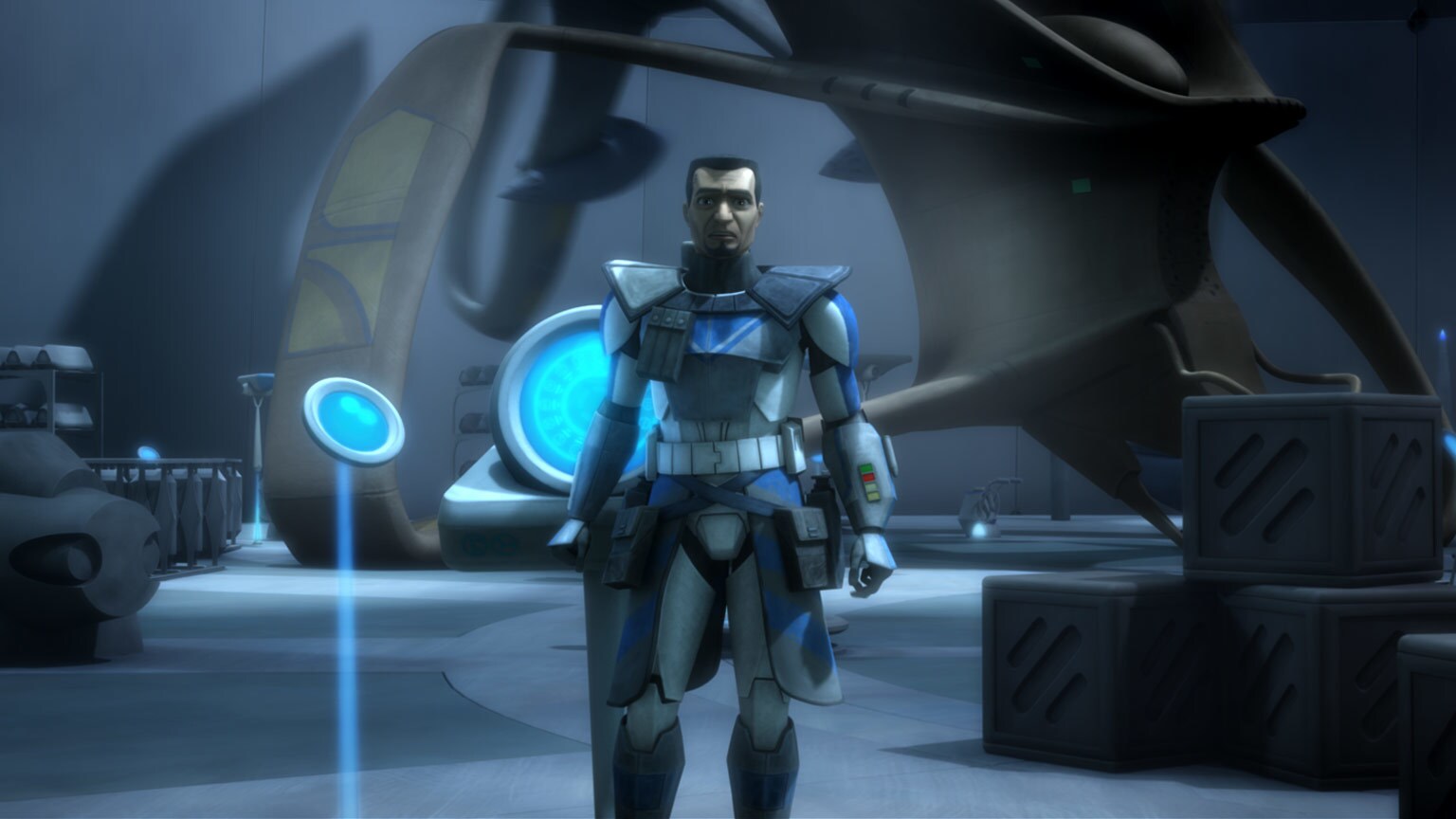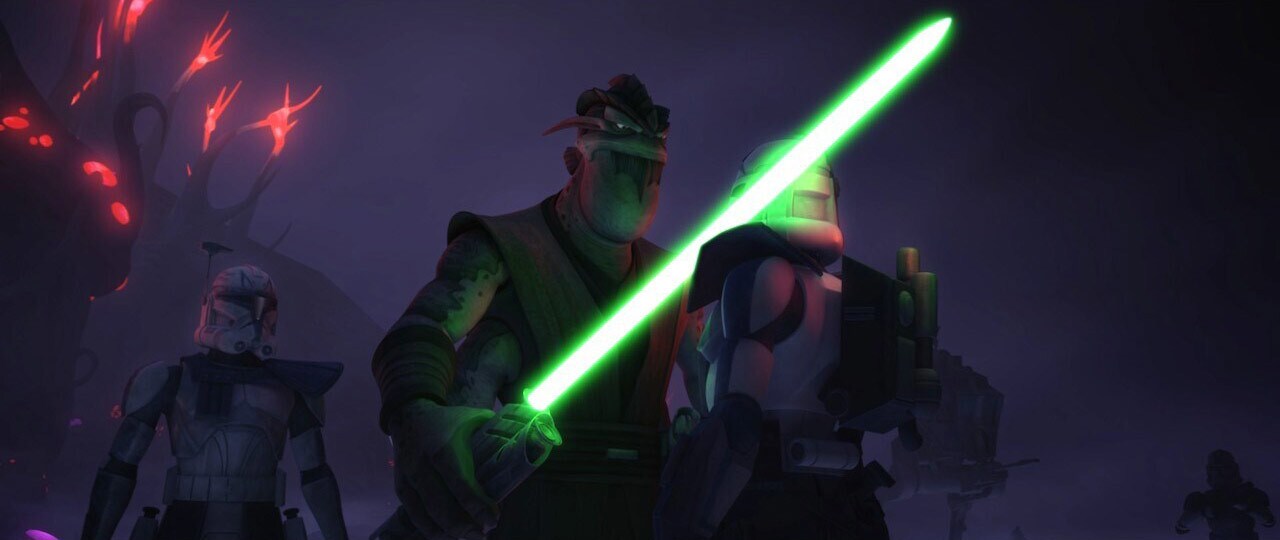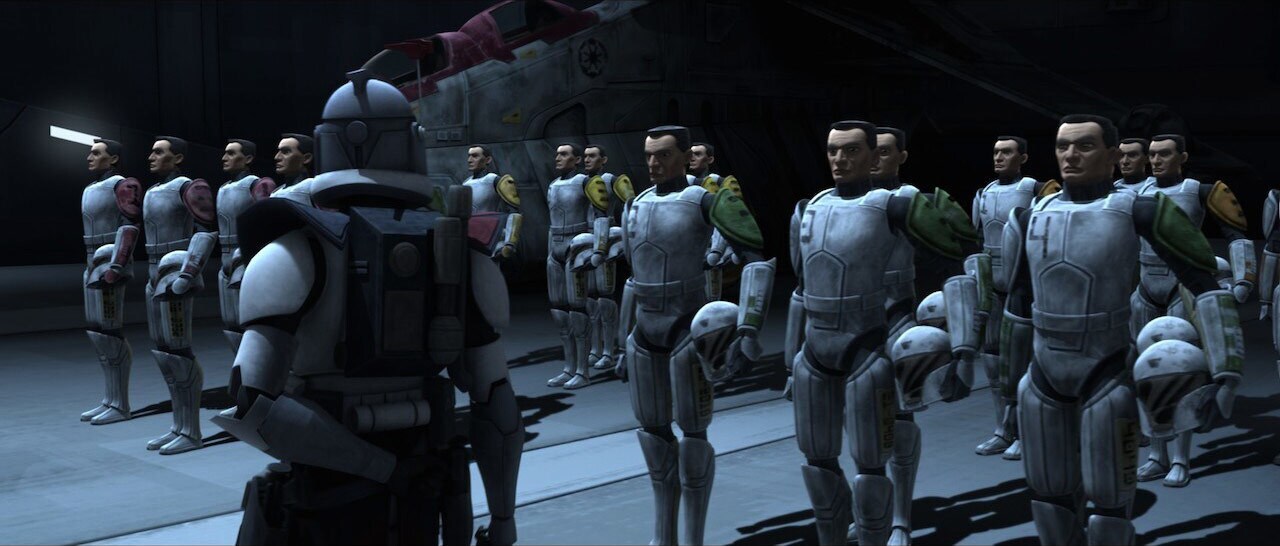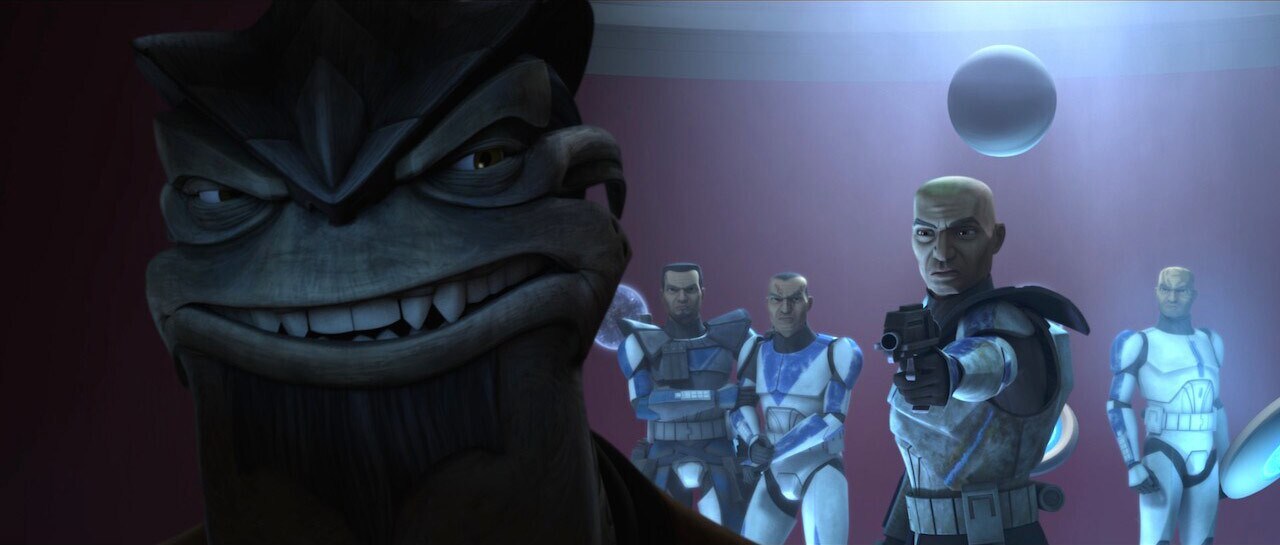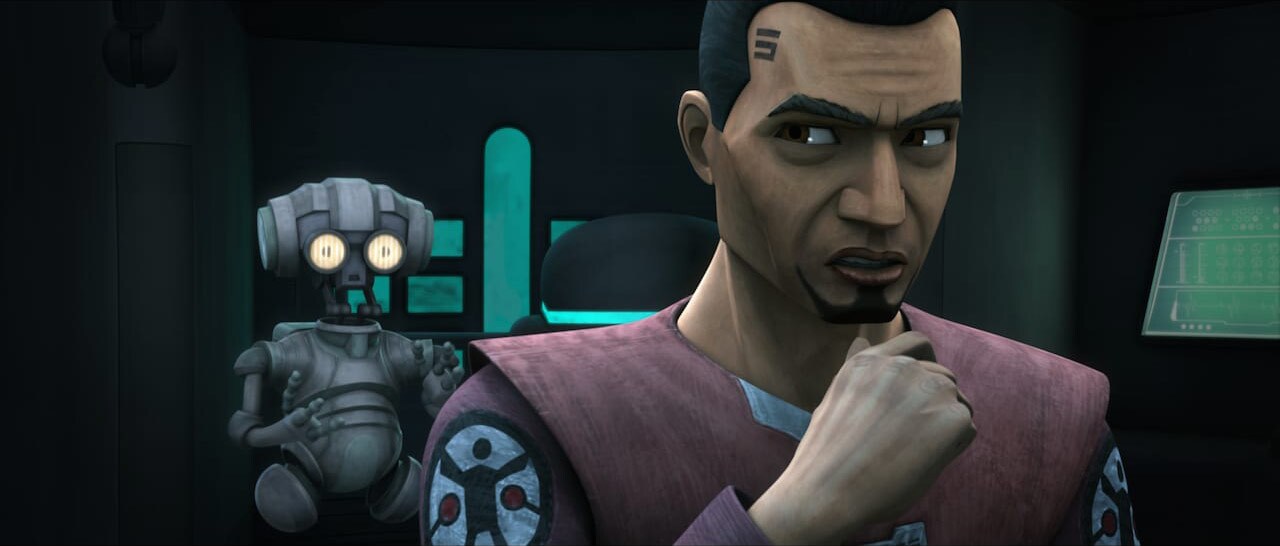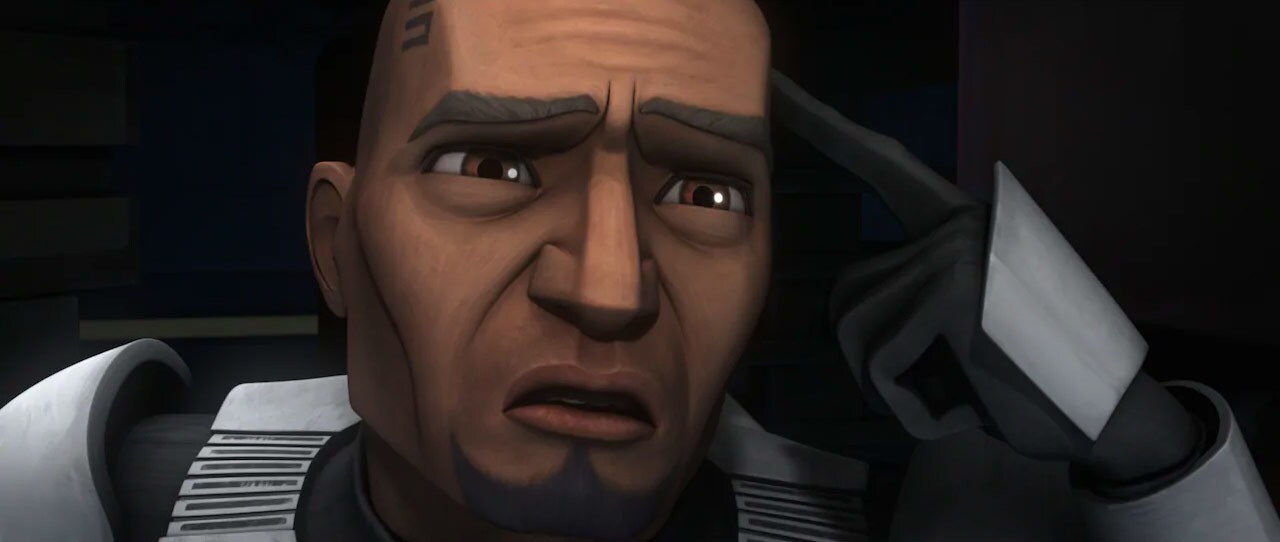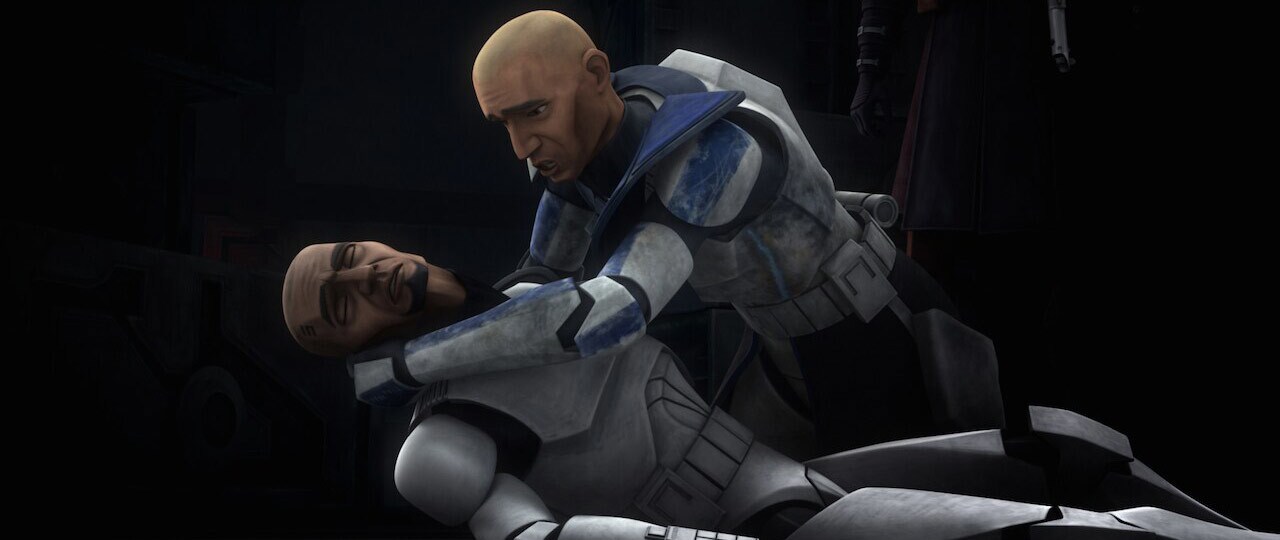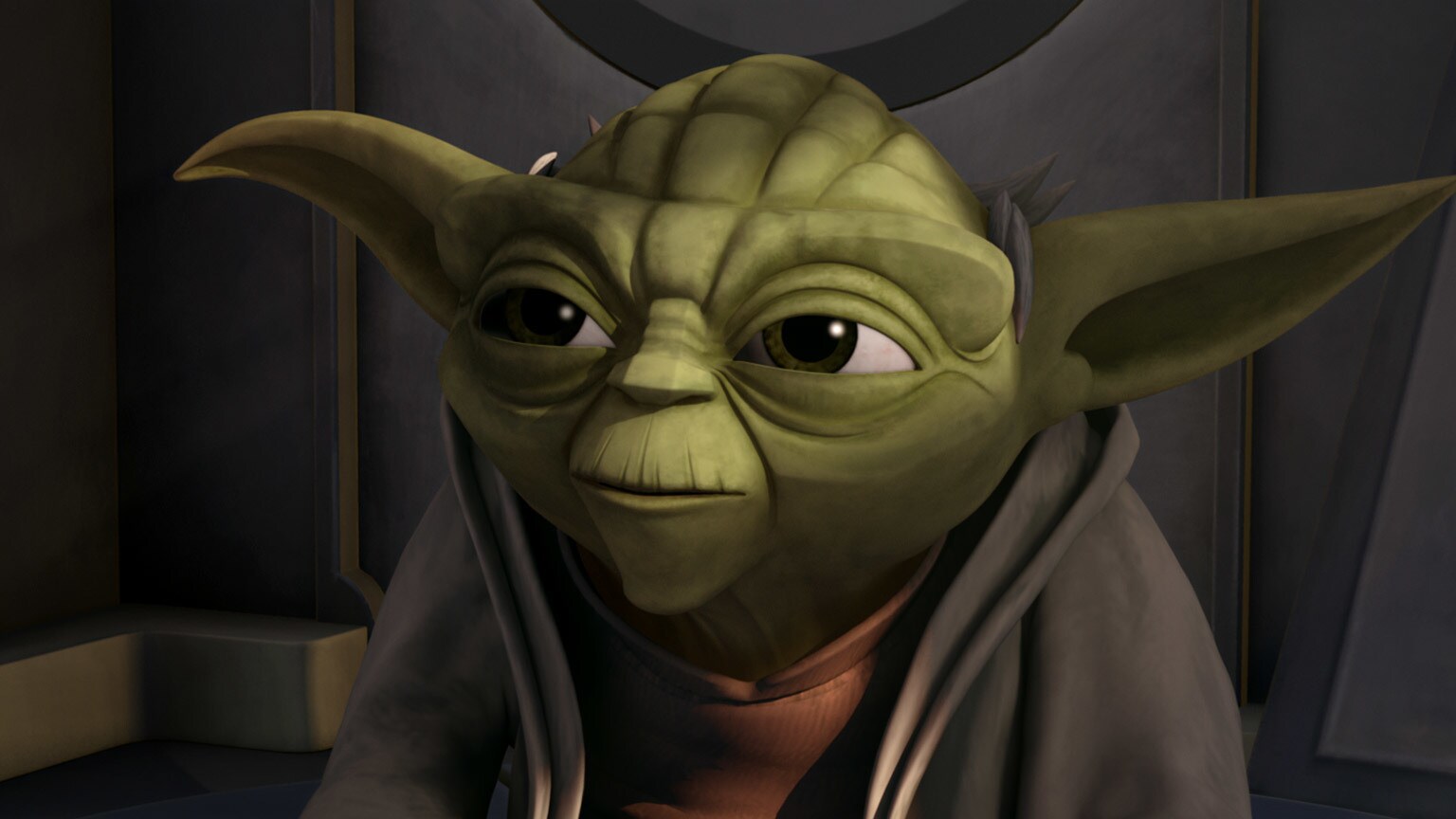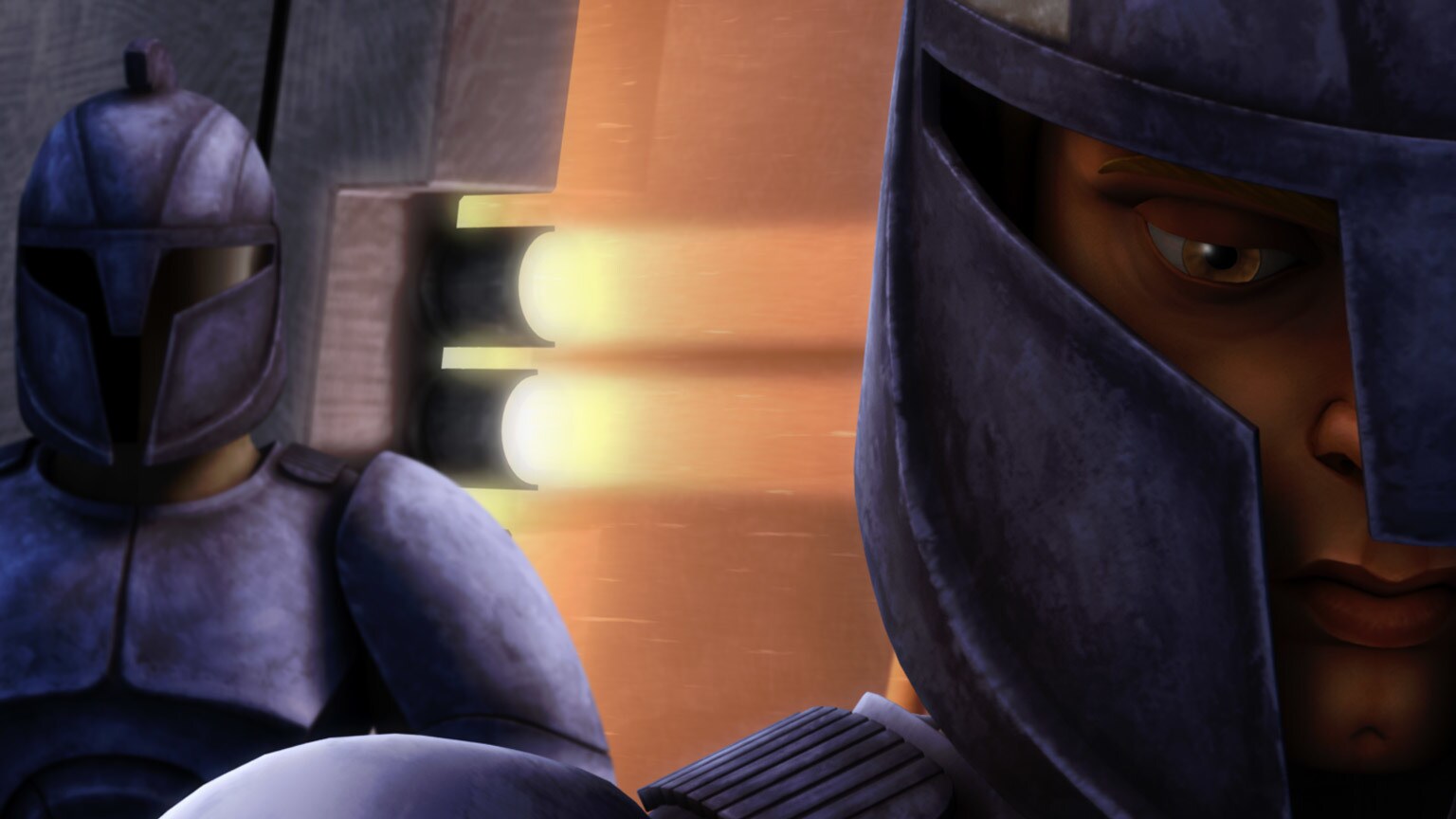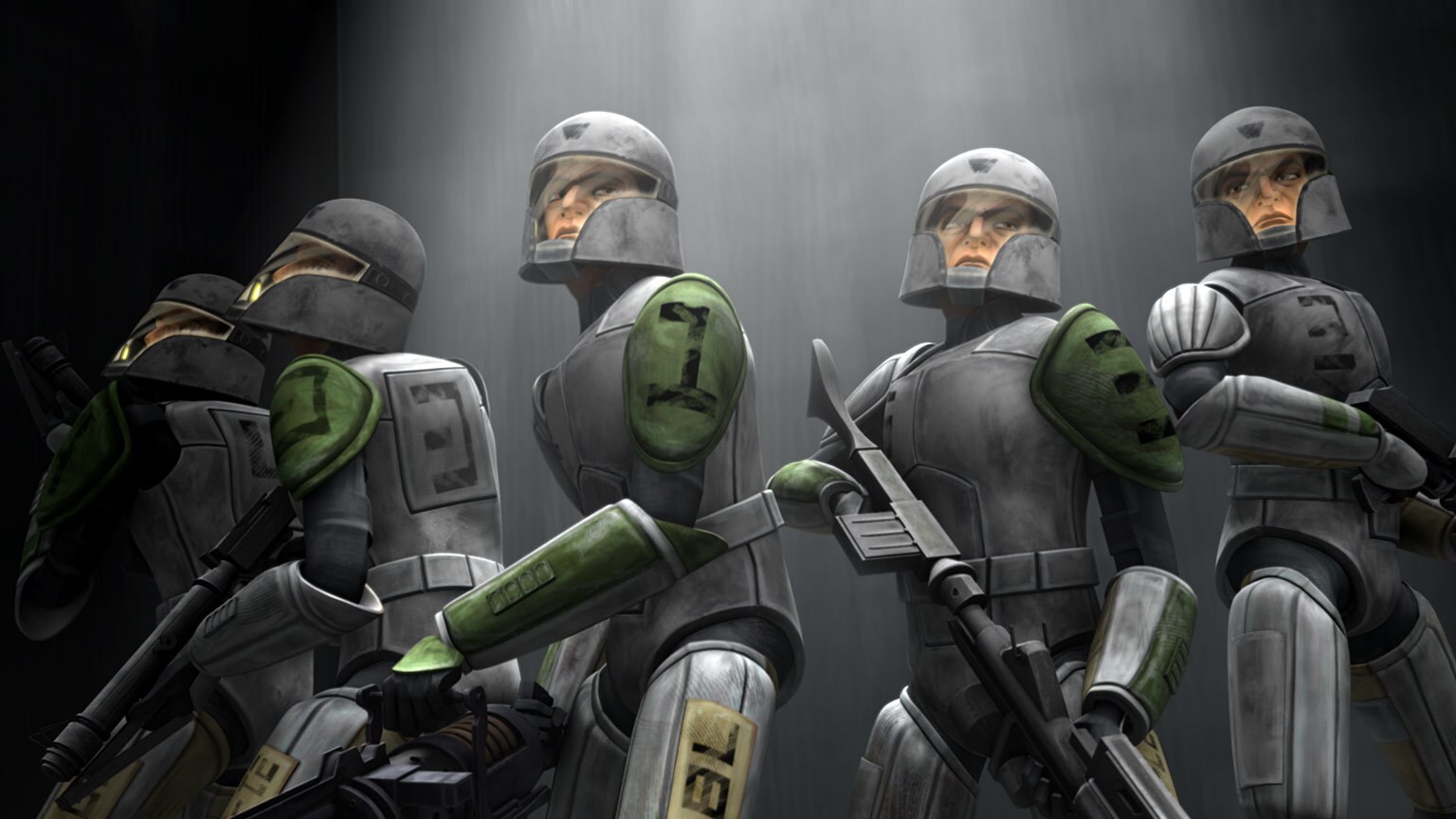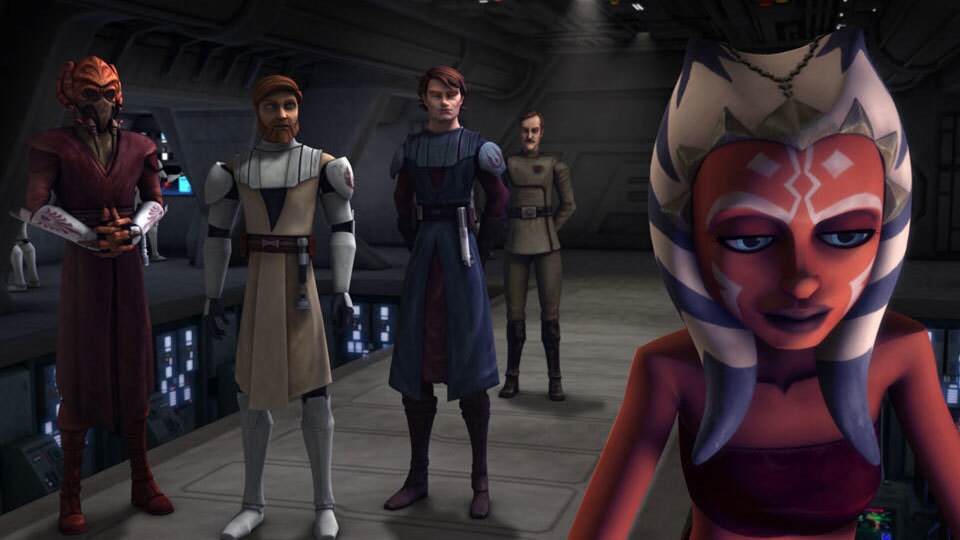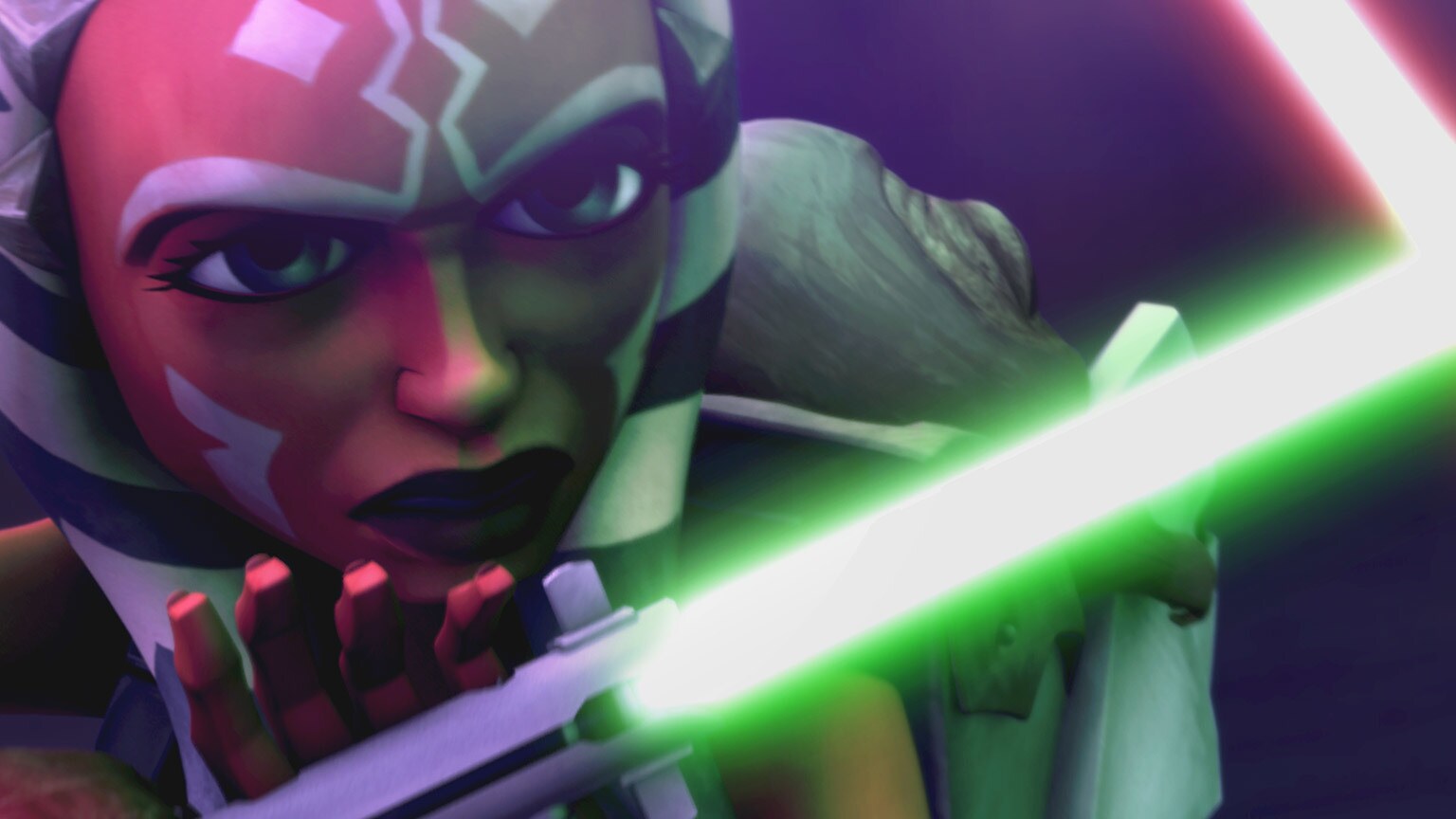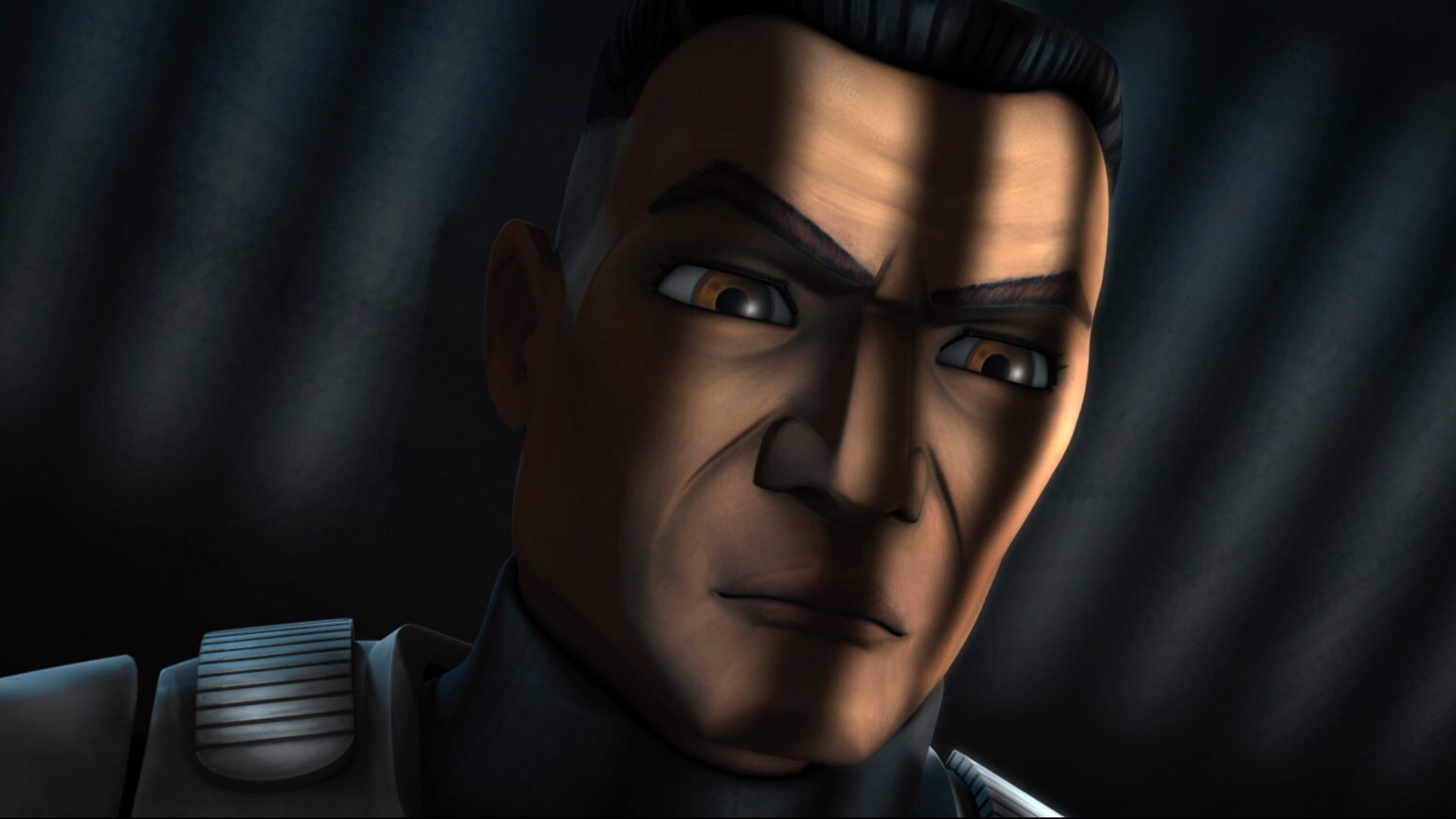The fall of the Republic is the intersection of many tragedies: Palpatine’s ascendance, Anakin Skywalker’s fall, Ahsoka Tano’s split from the Jedi Order. And all of it was almost prevented by clone trooper Fives, who discovered Palpatine’s plans to destroy the Jedi before they were carried out. If you've seen the final arc of Star Wars: The Clone Wars, you know that Fives' search for the truth was not in vain.
A member of Anakin Skywalker’s 501st Legion, Fives had what passes for a normal upbringing for a clone. He rose through the ranks and joined the war against the Trade Federation with thousands of his brothers. But his experiences with the Jedi and his near-discovery of Darth Sidious’ plot made him the person most likely to stop the rise of the Empire before it began. Fives became fatally entwined with the destruction of the Republic, and the major player in a tragedy filled with classic Star Wars themes of justice and hope.
Fives’ first experience with questioning the war he was built for came during the Umbara campaign. General Pong Krell was aggressive, willing to let clones die for his strategies, and Fives immediately resisted. Even within his own army, he found it important to stand up for fair play and honor among soldiers. Although it was difficult, and he faced criticism even from within his own unit, Fives and his clone allies resisted to the point of being sentenced to death.
This story is unusual in Star Wars because it pits characters who are ostensibly heroes against one another. Krell should be working for what’s right, if Republic propaganda is to be believed, but he’s still an individual, and individuals can choose for themselves whether to do good or evil. Fives doesn’t bow to Krell because of his loyalty to the Republic. Instead, he tries to use the values he was instilled with to improve it. Like a spy, he’s working outside the framework and with different motives than the people on his own side. But he’s living their values better than most.
The theme of brotherhood and family are key in Star Wars. Each trilogy starts with a disparate group of heroes who eventually become a family. The scope of the saga also allows for questions about what the repercussions of the Skywalker family saga is. Who is left on the floor after the dust clears? Who knew about the way the story was supposed to end too soon? Fives is the answer to both questions.
As a clone, he’s totally dependent on others’ plans. Even his birth was a product of an order, a number on a datapad. But he’s also a person, and that’s part of why his fight against the mastermind he doesn’t know is Darth Sidious is so appealing. It’s the story of someone breaking out of the mold meant for them. It starts out similar to Anakin Skywalker’s story, in which Anakin was so desperate to bring order to his chaotic life, but where Anakin turned to authoritarianism, Fives drew ever closer to discovering the Republic was about to become an Empire.
Later, the horror of Krell’s campaign looks like foreshadowing. Sidious plans for the Republic to tear itself apart. The values that Fives depended on are now almost completely gone: he begins to suspect someone higher in the ranks planned to use the clones to kill Jedi.
During the Krell campaign, Fives began to wonder what the point of the war is. He means it on an existential level: what ethical state could possibly condone such killing as for the greater good, and how are the soldiers on the front line supposed to get adequate mental support? When Fives discovers the control chips, this question expands to the existence of the clones’ programming. How could a moral government create people who could be controlled like droids? It can’t. It has become immoral.
In "Shattered," Ahsoka and Rex talk about how both the clones and Jedi were made for war, and found themselves thriving in it for good or ill. The series also explores what it’s like to be a clone. Sincere emotions and friendships grow between clones themselves or between clones and Jedi. A clone-only society exists unseen by most people, with a bar run by and for off-duty soldiers. The clones are people, and Fives was fighting to get to the bottom of an egregious violation of their personhood. The installation of the chips was just as much an act of violence as sending them to war.
Standing up for the rights of people who can’t immediately help themselves is a central theme in Star Wars. It’s a key part of the finale of Star Wars: Return of the Jedi, where the rebels befriend the Ewoks. Heroes are strengthened by their sincere friendships. In Fives’ story, this idea of compassionate brotherhood is intertwined with another key theme: hope.
It can be hard to see hope in stories like Fives’ search, where heroes die just before reaching their goals, or where it seems like the villains have won. The reassurance from Fives’ story comes from his competence. He discovered as much as he did through smarts and determination, learning what no other clone ever had. His story is also hopeful because it eventually became a victory for a larger cause. Fives’ discovery would enable Captain Rex to remove his control chip, and later to become part of the Rebellion that destroyed the Empire. Fives would never have guessed. He didn’t even know his enemy’s real identity. But his actions built a bedrock for others’ hope.
This is most directly seen in the series, where Captain Rex, struggling against his programming, tells Ahsoka to find Fives’ information. Because of it, she was able to remove Rex’s chip. Both are indebted to his memory. Fives’ actions rippled down the years into the course of the Rebellion, as well. Without Ahsoka, Ezra Bridger and Kanan Jarrus would not have known as much as they did about the history of the Jedi, or escaped Darth Vader.
Fives’ last words are "This is the end. Forget the mission. Oh, nightmare. I'm free." Deeply dark and ironic words for an audience that knows Order 66 is still coming. They’re also an echo of his friend Tup’s last words, showing the bond between the clones, both in terms of their brotherhood and their shared glimpses of the puzzle. Like parable of the Blind Man and the Elephant, people try to put together Sidious’ plans, but never seeing the full picture. Fives’ story calls backward and forward through the history of the clones and the legacy of Star Wars heroes overall. He fights for his fellow clones as well as for a legacy he almost glimpses, making his brief investigation one of the first acts in the spirit of the Rebellion.




